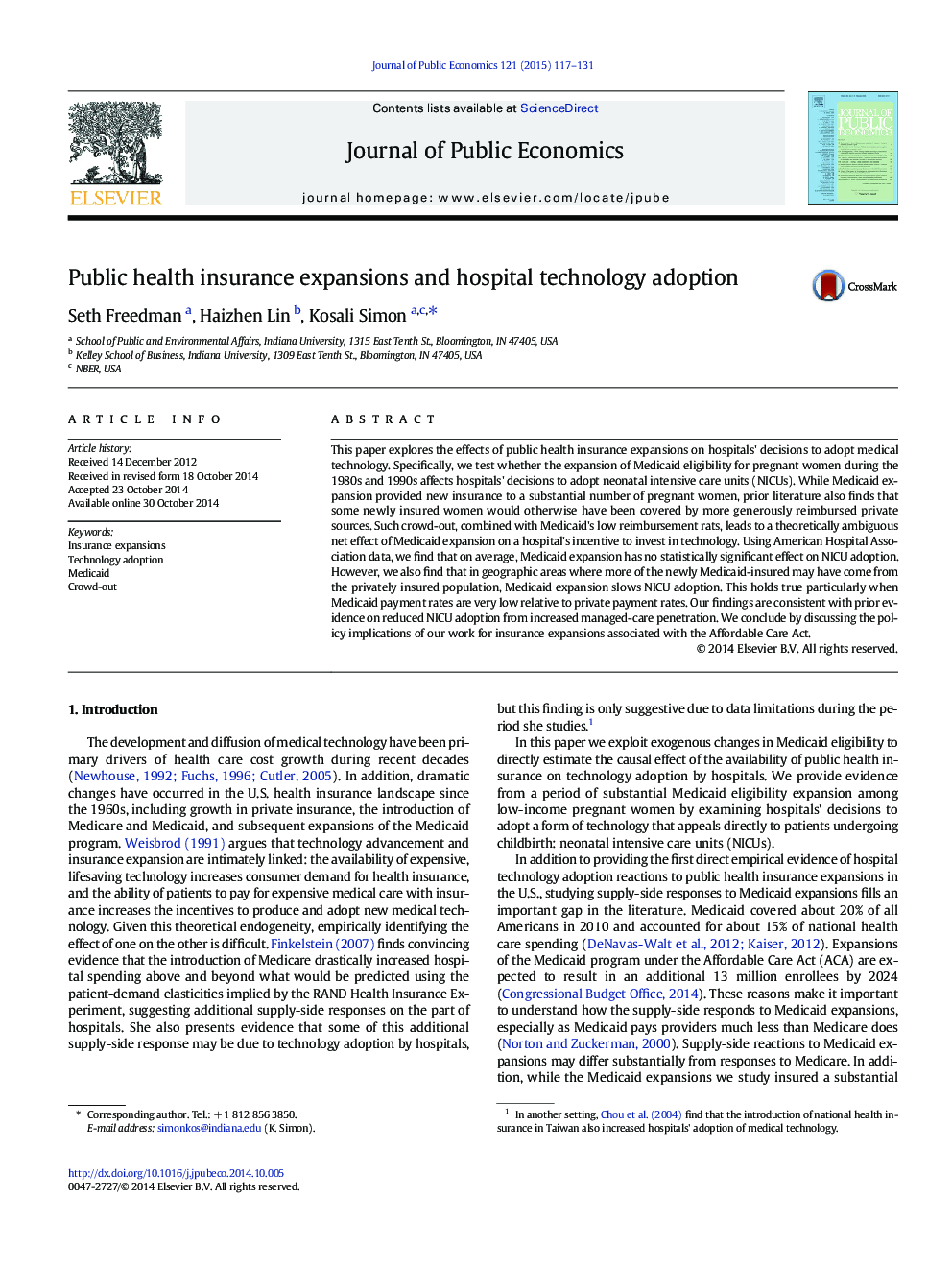| Article ID | Journal | Published Year | Pages | File Type |
|---|---|---|---|---|
| 969691 | Journal of Public Economics | 2015 | 15 Pages |
•We test how Medicaid eligibility expansions affect hospital technology adoption.•Overall, Medicaid expansions have no statistically significant effects on adoption.•Expansions slow adoption in areas with high expected private insurance crowd-out.•This effect is strongest when Medicaid reimbursements are far below private rates.
This paper explores the effects of public health insurance expansions on hospitals' decisions to adopt medical technology. Specifically, we test whether the expansion of Medicaid eligibility for pregnant women during the 1980s and 1990s affects hospitals' decisions to adopt neonatal intensive care units (NICUs). While Medicaid expansion provided new insurance to a substantial number of pregnant women, prior literature also finds that some newly insured women would otherwise have been covered by more generously reimbursed private sources. Such crowd-out, combined with Medicaid's low reimbursement rats, leads to a theoretically ambiguous net effect of Medicaid expansion on a hospital's incentive to invest in technology. Using American Hospital Association data, we find that on average, Medicaid expansion has no statistically significant effect on NICU adoption. However, we also find that in geographic areas where more of the newly Medicaid-insured may have come from the privately insured population, Medicaid expansion slows NICU adoption. This holds true particularly when Medicaid payment rates are very low relative to private payment rates. Our findings are consistent with prior evidence on reduced NICU adoption from increased managed-care penetration. We conclude by discussing the policy implications of our work for insurance expansions associated with the Affordable Care Act.
